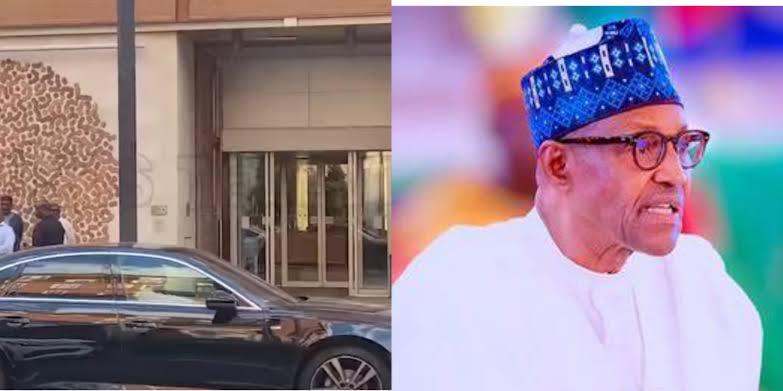Health
Buhari’s final days in £3,500-a-day London Hospital

The passing of former Nigerian President Muhammadu Buhari at one of the United Kingdom’s most elite medical institutions has cast a spotlight on the staggering costs and exclusivity of global medical tourism for Nigeria’s political elite.
Buhari died on Sunday, July 13, 2025, at The London Clinic, a prestigious private hospital situated on Harley Street in central London. His nephew, Mamman Daura, confirmed that the former leader had been in stable condition and anticipating discharge before a sudden decline led to his death later that afternoon.
“I saw him Saturday night; he was cheerful and ready for the doctor’s rounds the next morning. Unfortunately, he began having breathing issues around noon and despite the doctors’ efforts, he passed away by 4:30 p.m.,” Daura told ThisDay.
Buhari had reportedly arrived in the UK in April for what was initially described as a routine health review. However, complications set in, leading to an extended stay in the hospital’s Intensive Care Unit (ICU), where daily care costs are estimated at £3,000 to £3,500.
Founded in 1932, The London Clinic is renowned for its high-end facilities and specialist care, including cancer treatments, robotic surgeries, and orthopaedics. With over 900 consultants and physicians, the hospital handles more than 120,000 patients annually—many of them foreign dignitaries and royals.
A UK-based Nigerian doctor familiar with the hospital revealed that even basic services come at a premium. Consultations can run between £100 and £750, a CT scan costs around £500, and major surgeries range between £10,000 and £13,000. Standard rooms range from £1,000 to £1,800 per night, while VIP suites command up to £2,500. For intensive care, the top-tier cost of £3,500 a night provides high-risk patients with access to round-the-clock monitoring and advanced equipment.
Videos shared online shortly after his death showed Buhari’s family and associates arriving at the hospital, underscoring its reputation as a treatment center for Nigeria’s top political figures.
Despite federal efforts to improve healthcare infrastructure—including a N21bn 14-bed presidential wing approved by Buhari in 2021—many in Nigeria’s leadership circle continue to seek medical care abroad. Records indicate that Buhari himself spent over 200 days on overseas medical trips during his tenure, with billions of naira in state funds allocated for such travel over the past 16 years.
Medical professionals in Nigeria have expressed growing frustration over this trend. Dr. Tope Osundara, president of the Nigerian Association of Resident Doctors, criticized the inconsistency of leaders who champion domestic healthcare improvements yet opt for foreign treatment when ill.
“You can’t ask citizens to trust a system you yourself refuse to use,” Osundara said. “If leaders continue to bypass our hospitals, how do we convince the public to believe in them?”
Similarly, Nigerian Medical Association president, Prof. Bala Audu, emphasized the need to equip and fund public hospitals properly. “When those responsible for building the system don’t trust it, it sends a powerful, damaging message,” he said.
While every citizen, including public officials, has the right to choose where to receive care, medical experts insist that meaningful investment in Nigeria’s healthcare system is the only long-term solution to curbing outbound medical tourism and building public confidence.
(PUNCH)





















